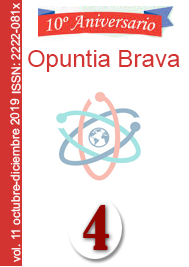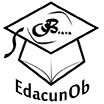Technological scientific training: new challenges
Keywords:
Cambio educativo, actividad científica, formación científicaAbstract
Education as a complex, historically determined social process has to respond to the challenge that current economic and technological development imposes, therefore, it must make transformations aimed at it. These transformations are managed under the term educational change. In the contemporary world, several educational systems face processes of change in technological scientific training as a process of gradual and intentional transformation of the conceptions, attitudes and practices of the educational community, aimed at promoting a developmental education in concrete historical conditions. In this sense, an experience is presented that makes it possible to demonstrate the achievement of a developmental education; that implies changes not only in the conceptions that support education, but also include development of educational attitudes and practices in the actions of those who star in it.







.png)



.png)



.png)





















